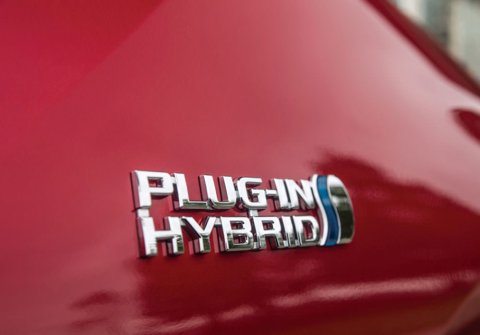Back
Tips to decide between hybrids, EVs and PHEVs


The first man to break the sound barrier, General Chuck Yeager, is 96 years old and very active on Twitter.
That last may surprise you, but the General is a wonderful palate-cleanser to the sea of misinformation and uninformed opinion you find on the internet.
His preferred phrase? When asked what his favourite aircraft is, he always bluntly answers: “Depends on the mission.”
Get on the internet to ask what’s the best green car for your needs, and some stranger with a Tesla symbol as their avatar is going to insist that buying anything other than a Model 3 is a huge mistake. Immediately after that, three people will post rebuttals, with articles shrieking that all EVs are built by exploited babies in far-off lands. You’re going to hear a lot of nonsense from all sides.
So, cut through the noise with Yeager’s maxim. What’s the best car to reduce your carbon footprint and ease your fuel bill? That, too, depends on the mission.

Conventional hybrid
First, and easiest, there’s the choice of switching to a car with a conventional hybrid powertrain. Vancouverites can take a bit of pride in our little footnote in hybrid history, as the first Prius taxi went into service here years ago.
First, the bad news. All the energy that moves a conventional hybrid around comes from fossil fuels. You put gas in the tank, and an internal combustion engine burns it, creating forward momentum, yet also greenhouse gases.
Where the hybrid shines is in taking that precious momentum, and conserving it. Instead of standard steel brakes, which convert inertia into heat, the regenerative brakes of something like a Prius work like miniature generators. Energy is sucked back up and used to charge an onboard battery pack.
Next, that battery pack discharges its energy into an electric motor, to help get you going again. A hybrid doesn’t stop you burning fuel, but it does make sure you don’t waste a drop of it.
Besides increased fuel efficiency, a conventional hybrid has a couple of advantages. Those regenerative brakes need less servicing, as they’re not burning up brake pads. As the battery packs are smaller than in a full electric vehicle, the environmental cost of manufacturing a hybrid is lessened – and so is the price tag.

And, lastly, you don’t really need to change much about your driving habits to own a hybrid. You can store them outside, don’t need to plug them in, and never need to worry about running out of electricity. Note, however, that a hybrid works best in stop-and-go traffic. City fuel economy is often better than highway, where those regenerative brakes aren’t doing much.
While the odd-looking Prius led the way, there are now conventional hybrids from many manufacturers, and all of them represent fuel savings over a normal car. However, why pay for fuel at all?
Electric vehicle (EV)
The joy of not having to make any trips to the gas station is the argument made by most electric vehicle (EV) enthusiasts. In the Lower Mainland, where commute distances are relatively short, a plug-in car might work for you. Most models offer more than 200 kilometres of range, with mid-level mainstream EVs offering up to nearly 400 km of range. That’s more than enough for most consumers.
Besides ignoring fluctuating fuel prices altogether, EVs require even less maintenance than a hybrid. The difference between an internal combustion engine and the relatively few moving parts of an electric vehicle is akin to the difference between the workings of a Swiss watch or a plain ol’ Timex bargain. You’ve got a battery pack and an electric motor, and a plug. That’s it.
As with hybrids, some consumers do have concerns about battery packs. These are expensive to replace, and most of us associate battery-powered appliances with the longevity of our smartphones. Those seem to work fine for a while, but after a couple of years, they’re running out of charge in less than a day.

As most Canadian consumers own their cars for at least eight years, battery longevity is a bit of a boogeyman. Happily, the evidence doesn’t really support these fears. As an example, the Nissan Leaf is the best-selling consumer EV on the market, and very few have needed battery replacement in the decade it’s been on sale.
Even if you did need to buy a new battery down the road, the cost of replacing a battery has come down in recent years. Swapping out a tired battery for a refurbished unit will improve the range and extend the useful life of the car, and replacement unit costs line right up against major recommended internal-combustion maintenance requirements like replacing water pumps and timing belts.
There are two other concerns with EVs. First, winter conditions do tend to sap range. If you’re parking your EV indoors in a garage, the cold soak is less of a concern, but you will see reduced range in cold conditions. As with a gasoline car, it’s rare to get the maximum range.
The other hurdle is cost. EVs are expensive, even the mainstream models. Currently, large provincial and federal rebates defray these costs, although that does lead to large initial depreciation.
Plug-in hybrid (PHEV)
Wedged between pure EVs and conventional hybrids are the plug-in hybrids (PHEV). These are just as you’d expect: a conventional hybrid layout with a slightly larger battery pack.
Plug-in hybrids require similar maintenance as a regular hybrid, and they don’t have the maximum range of a pure EV. However, for those with even medium-length commutes, a plug-in hybrid offers the best of both worlds.
On one hand, the shorter all-electric range of a PHEV might be enough to get you to and from work without burning a drop of fuel. Planning on heading out of town, and not sure you’ll be able to plug-in when you get to your destination? Not to worry – a PHEV can function with no more thought than a conventional hybrid
As infrastructure improves to support EVs and PHEVs, plug-in vehicles will likely rise in popularity. The electric sound barrier, so to speak, has already been broken, and electrified automobiles of all three kinds will continue to join the mainstream.

A dependable hybrid crossover that doesn’t require an extra thought? A compact EV for your urban commute? Or perhaps a PHEV that’ll become the new, eco-friendly family workhorse.
Which one is best for you will depend on your specific needs, but all have their advantages. So, what’s your mission?
Brendan McAleer is a freelance writer and automotive enthusiast. mcaleeronwheels@gmail.com
By: North Shore News
GuidedBy is a community builder and part of the Glacier Media news network. This article originally appeared on a Glacier Media publication.
Location
Topics
Related Stories
-
Auto Body North Vancouver
This B.C. couple converts ordinary vans into epic travel vehicles
Christina Yau and John Syslak were used to getting special attention every time they crossed the Canada-U.S. border in the...
-
Food & Drink Abbotsford
4 Dishes to Make with Summer Peaches
Summer is the perfect time of year to experiment with different ways to use peaches. These juicy, refreshing fruits can be...
-
Home & Garden Abbotsford
How to Create a Zero-waste Household
Reducing your household waste can help the planet in many ways. You may even be able to eliminate your waste completely if...
-
Beauty & Wellness Abbotsford
7 beauty trends for summer 2021
You may be looking forward to re-entering society this summer or at least looking better during a video meeting. Beauty trends...
-
Gifts Abbotsford
Four fabulous experience gift ideas for mom this Mother’s Day
If you’re tired of giving the same old types of Mother’s Day gifts, treat your mom with an experience instead. There are many...
-
Home Furniture & Decor Abbotsford
Working from home? 4 tips for your home office setup
Working from home can be a better experience for you with the right office setup. Setting up your in-home office correctly can...
-
Jobs & Education North Vancouver
North Star Montessori – Student Parent Teacher Q&A
STUDENT:Lukas What do you like best about attending your school? I love the hands-on experience I get from my school. I...
-
Jobs & Education North Vancouver
St. Thomas Aquinas – Student Parent Teacher Q&A
STUDENT:Anna G. What do you like best about attending your school? I like that I am constantly surrounded by people who...
-
Jobs & Education North Vancouver
Alcuin College – Student Parent Teacher Q&A
STUDENT:Gavin B. What do you like best about attending your school? Everything! The teachers at Alcuin make it a great...
-
Jobs & Education North Vancouver
Island Pacific School – Student Parent Teacher Q&A
GR 8 STUDENT:Oliver Y. What do you like best about attending your school? I love that the teachers are very supportive,...
-
Jobs & Education North Vancouver
Kenneth Gordon Maplewood School – Student Parent Teacher Q&A
STUDENT:Colette J. What do you like best about attending your school? Before coming to KGMS, I found math and writing very...
-
Jobs & Education North Vancouver
Tips to Find the Right Private School
Many families in Canada are turning to private and independent education. Searching for the right school is not a sprint; it’s...
-
Wedding Experts North Vancouver
Expert event planning, without the high price tag
Sponsored Content Petalino Flower Bar and Events helps you realize your vision for weddings, parties and corporate...
-
Clothing North Vancouver
Frugal North Van fashionista gets high on thrifting
Let’s be honest, being stylish in Vancouver can be a slog if you don’t have the funds. Unless, you get creative. Enter Tijana...
-
Auto Body North Vancouver
This B.C. couple converts ordinary vans into epic travel vehicles
Christina Yau and John Syslak were used to getting special attention every time they crossed the Canada-U.S. border in the...
-
Seasonal North Vancouver
Urban exploration focus of new North Van summer camp
Riding the SeaBus as a teenager, seeing the streets of home fade from sight, is a rite of passage. The North Shore’s...
-
Food & Drink North Vancouver
City of North Van approves Shipyards Brewery District
The City of North Vancouver is opening the taps and adding a new “brewery district” to Lower Lonsdale. Council voted...
-
Chinese North Vancouver
Chinese restaurant dishes out spices of Szechuan to North Vancouver
Sponsored Content Real foodies know that the best food often comes out of small, unpretentious family-run...
-
Beauty & Wellness North Vancouver
Get the star skin care treatment you’ve always wanted
Sponsored Content Want to be pampered like a celebrity? Become a client of Celebrity Laser and Skin Care in North Vancouver...
-
Local Attractions North Vancouver
North Vancouver's Shipyards Night Market brings back food, beer and family fun
Mark your calendars for Friday nights in May through September for the return of the North Shore’s popular Shipyards Night...
-
Delivery North Vancouver
Larry's Market launches vending machine at Lonsdale Quay
Larry’s Market Vegetarian Grocery Store, featuring local and organic goods, will open later this spring at Lonsdale Quay, but...
-
Healthcare North Vancouver
North Shore counsellor offers integrative approach
Sponsored Content If you’ve ever suffered from a condition like depression, anxiety or post-traumatic stress disorder (PTSD),...
-
Food & Drink North Vancouver
Lonsdale eatery combines two culinary traditions
If you have a favourite fast food restaurant, a place through which you indulge your guilty pleasures, there is likely no...
-
Delivery North Vancouver
Vegetarian grocer Larry’s Market settles into North Vancouver Shipyards
Opening Larry’s Market at the North Vancouver Shipyards feels like coming home for Ryan Dennis, who spent 25 years in the...
-
Local Attractions North Vancouver
North Vancouver's Shipyards ready for debut
Things are buzzing in the Shipyards. After a century as a hub for industrial activity and decades as polluted brownfield, City...
-
Boutique North Vancouver
Kids' clothing company plays outside the box
Paige Manning and her husband Kaleb conceived Little Bean + Co. on a stormy night during their honeymoon in Tofino. It was...
-
Food & Drink North Vancouver
Lynn Valley Village sushi spot satisfies
My love for sushi is inversely proportional to my disdain for writing about it. What is there left to say? I don’t know...
-
Clothing North Vancouver
Couple brings Irish flavour to Lower Lonsdale
Helen Ritchie became the owner of a Celtic store in North Vancouver by accident. After immigrating to Vancouver from Cork,...
-
Cafe North Vancouver
Tommy’s Café draws the crowds in Lynn Valley
There was a proliferation of bike helmets and plush toys in Tommy’s Café during my recent visit to the breakfast-focussed...
-
Shopping North Vancouver
Lonsdale specialty shops complement each other on the waterfront
Green Leaf Brewing celebrates its fifth anniversary this week. I recall first learning of the brewery’s opening and wondering,...
-
Food & Drink North Vancouver
Tacomio creates authentic Mexican street food
According to the edicts of the prevailing market economy, competition is a good thing. The theory is that numerous options...





























